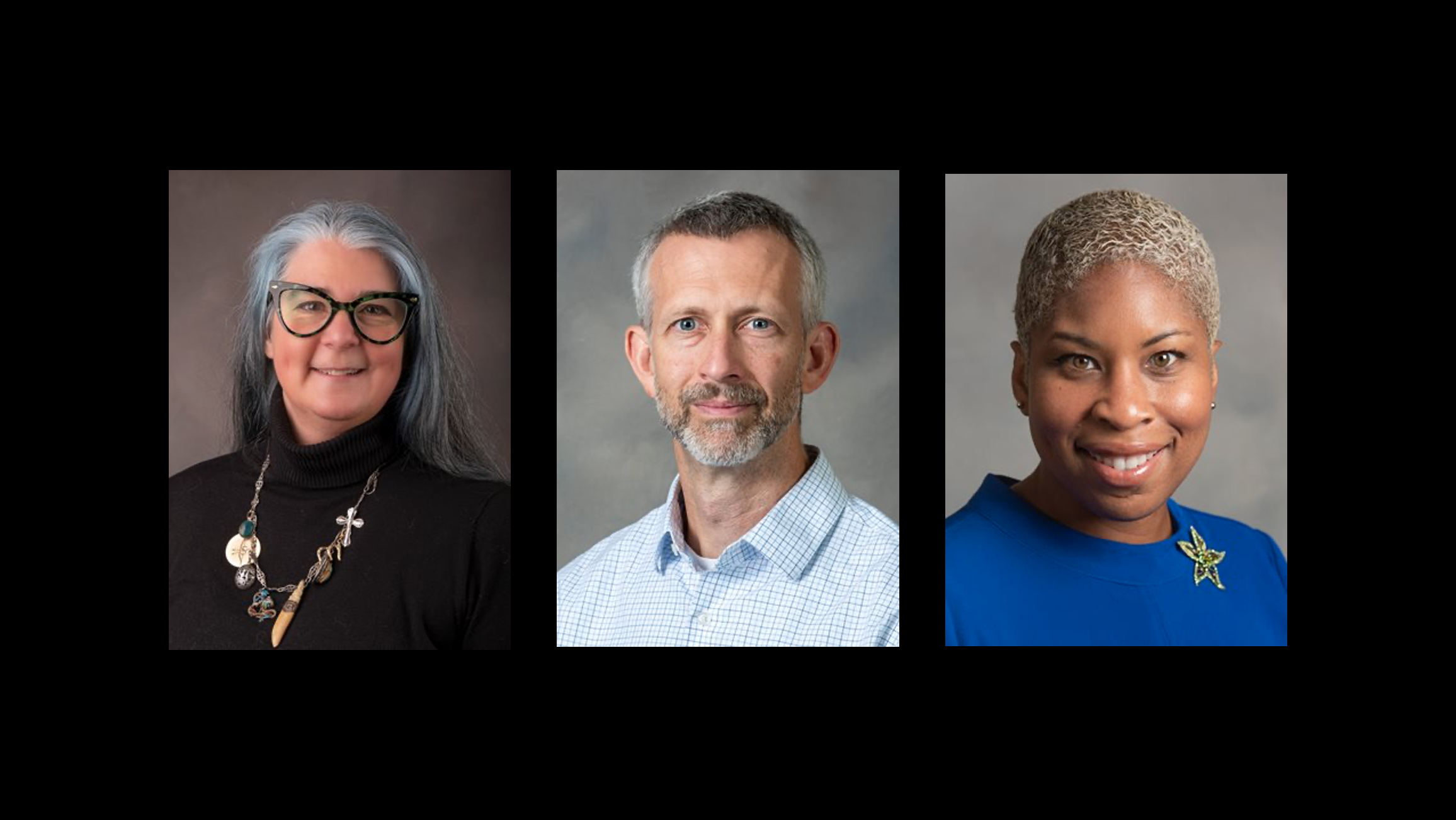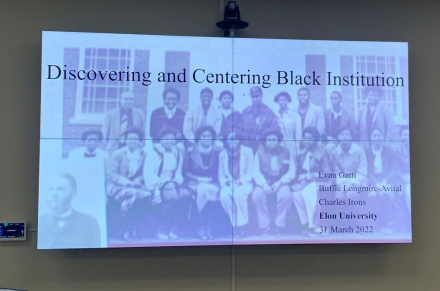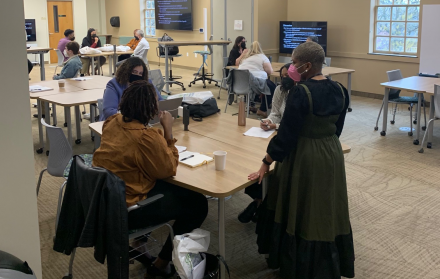Members from the Committee on Elon’s History and Memory shared Elon’s progress toward reconciling a complicated history at the consortium’s semi-annual meeting.

Three Elon University faculty members led a presentation on their work as members of the Committee on Elon History and Memory at the Universities Studying Slavery (USS) Symposium at Guilford College on Thursday, March 31.

Evan Gatti, associate professor of art history and committee chair, Charles Irons, professor of history, and Buffie Longmire-Avital, associate professor of psychology and director of the Black Lumen Project, engaged members from USS institutions about “Discovering and Centering Black Institution.”
Black institution is framed as the infrastructure that enhances the Black experience. It is the systems, programs and spaces designed to support Black identifying students, faculty and staff.
The Black Lumen Project: An Equity Initiative, which aims to build on existing work related to the Black experience at Elon, has been affiliated with USS since February 2019. The Black Lumen Project amplifies the work of Elon’s anchors of Black institution, African & African-American Studies at Elon and the Center for Race, Ethnicity, and Diversity Education.
“Our session was dynamic, interactive, restorative and created an opportunity to voice necessary thoughts and ideas about sustainable next steps,” said Longmire-Avital.
“As Elon faculty, staff, students and alumni, who desire telling a more authentic version of the past, move beyond the discovery phase and try to find ways to sustain the work, the question of how to center and see Black institution lingers,” according to the presentation’s abstract.

The presentation examined how Black institution in higher education was cultivated by the labor of Black persons, but their work often goes unrecognized and unsupported. Then, the group discussed the importance of moving beyond uncovering Black institution and the need to focus on it.
The interactive experience provided the opportunity to learn about other institution’s strategies to uncovering their history.
“It was meaningful to see the work other institutions are doing,” Irons said, “We found ourselves particularly inspired by schools that are committing substantial institutional resources to restorative justice by changing the built environment, messaging on tours and throughout their literature.”
While many institutions shared successes, it wasn’t always uplifting. There were numerous accounts of unsupported and underfunded work, overworked individuals and understaffed projects, and the difficulties traversing equity work in traditional higher education frameworks that weren’t designed to be equitable.
“One of the most important takeaways for me was the notion that these efforts succeed when they are thoughtfully and critically conceived, when they are conducted in conversation with an expanded and inclusive sense of community and when they are embraced and fully supported by those at the helm the institution,” said Gatti.
Elon joined USS in February 2019. Elon was the 50th member to join and is now a part of over 90 institutions participating in USS.
Universities Studying Slavery allows participating institutions to work together as they address both historical and contemporary issues dealing with race and inequality in higher education and in university communities as well as the complicated legacies of slavery in modern American society.


